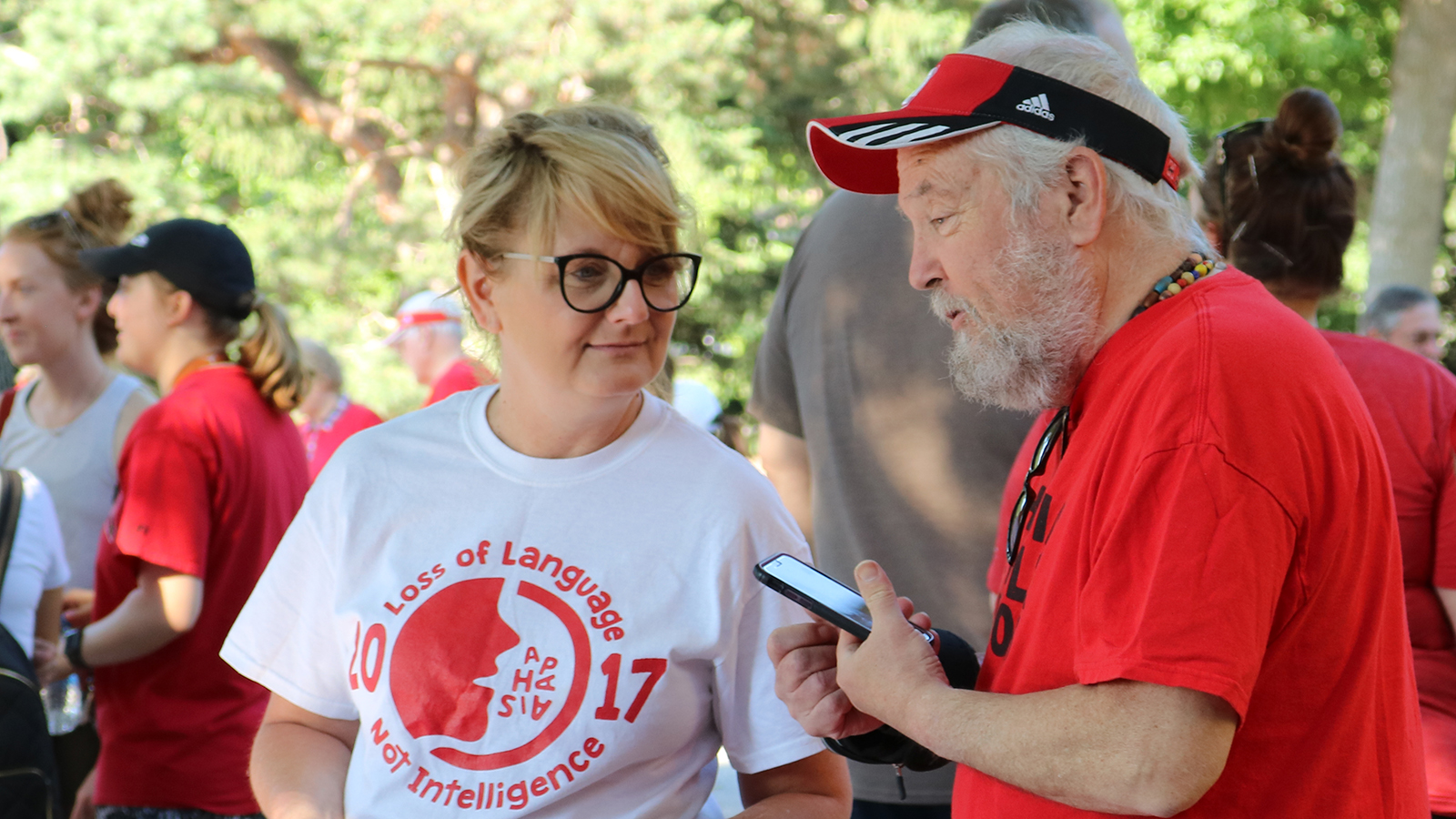
Parents’ support, high school play set Kristy Weissling on path to SLP clinical supervision and research at Nebraska
11 May 2021 By Kelcey Buck
Being cast as the lead in a high school play may not seem like a typical starting point for a career in speech-language pathology. But, for associate professor of practice Kristy Weissling, that’s exactly how she got her start.
After being cast as Annie Sullivan, Helen Keller’s teacher, in her high school play, “The Miracle Worker,” Weissling’s guidance counselor asked what she wanted to be. She responded with, “Annie Sullivan.” When her counselor recommended she study occupational therapy, physical therapy or speech-language pathology, Weissling already knew she was headed to the University of Nebraska-Lincoln. So, she decided on the latter since it was the only one of the three offered at Nebraska at the time.
After completing her bachelor’s degree, Weissling stayed at Nebraska for her master’s degree in speech-language pathology. It was during those two years she got her start as a researcher.
“I always admired the professors in the program who were trying to find better ways to help people with communication difficulties,” Weissling said. “I did a master’s thesis and really enjoyed it. As my career developed, research became more and more important to me as a clinician.”
Eventually, Weissling got the opportunity she had been hoping for as a clinical supervisor at a university clinic at Nova Southeastern University in Fort Lauderdale, Florida. She was there for seven years before getting a call from one of her former professors, Edna Barkley Professor Emeritus David Beukelman.
“He told me he was doing research in augmentative and alternative communication (AAC) and aphasia, and that he’d like me to apply for a clinical supervision position available in the clinic and join the team looking at AAC and aphasia.”
Weissling told Beukelman she was not looking for a job, but her husband encouraged her to apply to at least learn more about the position.
“When I got here, I was impressed with the resources and work being done,” Weissling said. “I saw this as a place that would challenge me, and it has.”
In spite of her hesitation to apply for the job initially, Weissling has found a home in her return to Nebraska. The work she did with Beukelman’s team helped her build many collaborations that still exist. She also finds it easy to see how well her work aligns with the missions of a land-grant university.
“The opportunity to work at a land-grant institution has been a game-changer,” Weissling said. “The trifold mission of this university to teach, research and extend knowledge fits perfectly with a clinician who wants to serve clients, teach students, find answers to clinical questions, and extend that knowledge.”
Weissling, who completed her professional doctorate from Nova Southeastern in 2006, was recently promoted to full professor of practice, effective July 1. As a first-generation college student whose parents did not have the opportunity to finish high school, Weissling is grateful her late parents instilled the value of education in their children.
“Being fully promoted makes me feel like I have represented them well,” Weissling said. “They both had such a great admiration and appreciation for education. They clearly articulated to me the Importance of education and they never doubted I would go to college and succeed. In some ways, we were all very naïve because we didn’t know the odds were stacked against me – they never let me think that. I’m so very thankful to them for that. When I think about my promotion, I mostly think of them and what they sacrificed so I could have this opportunity. I guess in a way it’s how I paid them back for believing in me. I only wish they had been there to see it happen.”
Weissling has several goals for the next few years of her career, including working toward a multidisciplinary clinic at the Barkley Memorial Center, continuing her work in AAC assessment, and continuing her work with American Heart Association National Writing Committee for post-acute Stroke Rehabilitation Standards, the Nebraska Stroke Advisory Council (NSAC) Rehabilitation Task Force, the Nebraska Stroke Association, and the Nebraska Chapter of the American Heart Association to make Nebraska a leader in rural stroke care.
No doubt she will also continue to cherish the opportunity to walk alongside clients and students at the Barkley Speech Language and Hearing Clinic as they take the journey of learning and communicating together.
“There is nothing quite as powerful as a university clinic program where the students help the clients and the clients help the students, and you get to watch that interaction happen!”
Special Education and Communication Disorders
College of Education and Human Sciences